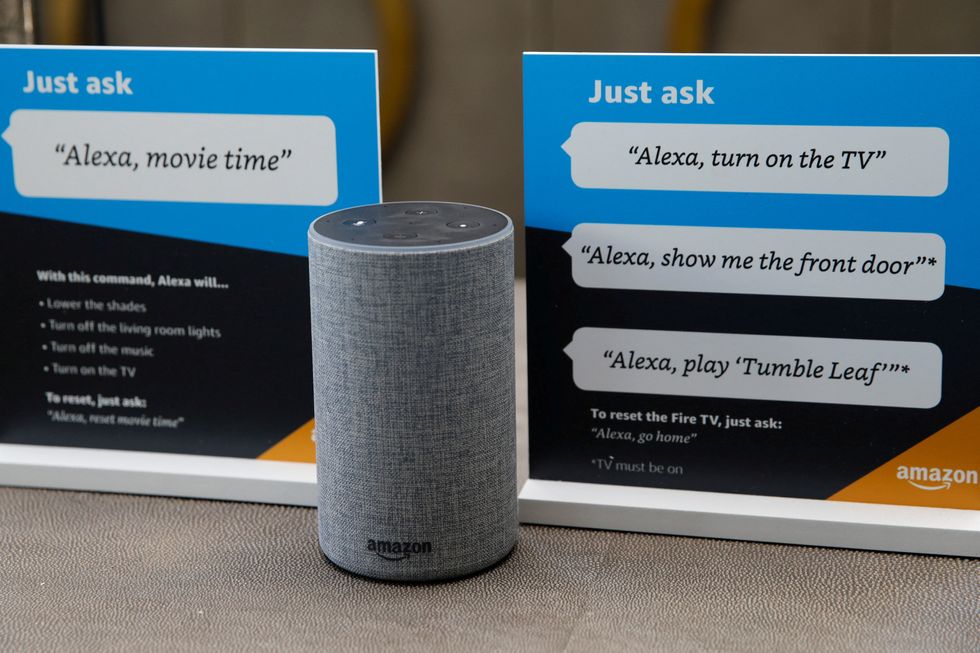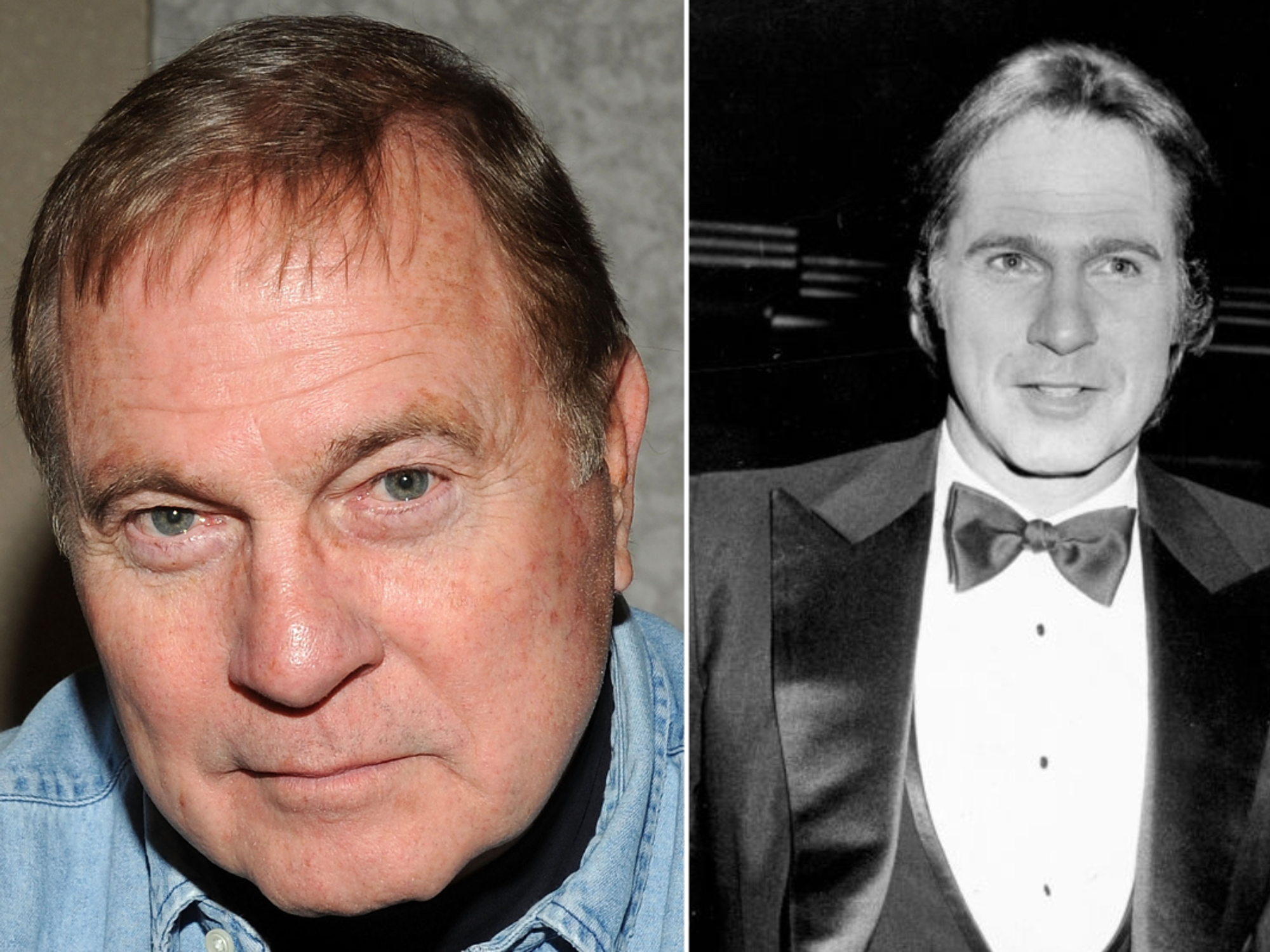Amazon lost $25bn selling Fire TV Stick and Echo devices, now it wants to charge YOU to use Alexa

Amazon sells several devices powered by Alexa, which could soon be upgraded with an optional paid-for version of the hands-free assistant
|GETTY IMAGES

All products and promotions are independently selected by our experts. To help us provide free impartial advice, we will earn an affiliate commission if you buy something. Click here to learn more
That's according to sources speaking to Wall Street Journal about the financial situation at the shopping giant
- Paid-for version of Alexa could launch as soon as this week, WSJ claims
- Monthly fee for one billion Alexa device owners could plug $25bn hole
- Amazon charges much lower prices for Alexa-devices than many competitors
- Improved AI-powered assistant will offer "near-human-like conversations"
- But Amazon will charge a monthly fee between $5-10 (£3.99-£7.99)
- Those who want to use Alexa for free will lose out on latest AI tricks
Don't Miss
Most Read
Amazon wants to introduce a paid subscription for its Alexa voice assistant to begin to recoup some of the $25 billion loss incurred by its devices business between 2017 and 2021, according to a new report from the Wall Street Journal.
This isn't the first time we've heard about plans to start charging Amazon Echo, Fire TV, and Echo Show owners to unlock a more advanced voice assistant ...but sources now believe the subscription could come as soon as this week. As we heard from earlier rumours, Amazon is believed to be targeting a monthly price between $5-$10 (roughly £3.99-£7.99) for a next-generation Alexa voice assistant that competes directly with OpenAI's latest ChatGPT model, the upgraded Siri powered by Apple Intelligence, and Google Gemini.
Speaking to the Wall Street Journal, an engineer who worked on the Alexa team said the entire division is barrelling towards an internal deadline to launch a subscription even though "the technology isn’t there." Last month, a report from Fortune claimed "money-bleeding Alexa division could face more cuts if a paid version of its AI-enabled voice assistant flops."
Amazon sells its smart home devices, including its Echo smart speakers, Echo Show displays, Fire TV Cube, and other gadgets at razor-thin margins in the hopes that device owners generate revenue for the company elsewhere. This is a similar business model to that of console manufacturers, with Sony selling its PlayStation consoles at a loss to generate money from years of game sales and subscription fees.
Analysts from Bank of America, led by Justin Post, did some (very) rough calculations for Fortune to guesstimate how much money could be generated by a subscription to Alexa. Even if just one in five Echo devices sold remains active to this day with a unique user, that equates to 100 million active users globally.
If 10% of those Amazon device owners decide it's worth spending $5 a month for an improved Alexa experience, that would generate $600 million a year in revenue for Amazon. At $10, it's looking at $1.2 billion.
Even with limited adoption — and the Bank of America analysts were deliberately conservative in their estimates due to the tough competition from free-to-use alternatives like ChatGPT and Google Gemini, not to mention the uncertainty about whether people even want to use this type of generative AI with a hands-free gadget, like Amazon Echo — it would begin to claw back some of the losses from the Amazon devices division.
Coupled with other recent initiatives, like the decision to show adverts in Prime Video for the first time earlier this year — a controversial decision that prompted enraged users to kickstart a lawsuit against Amazon, it's clear that Amazon is pushing hard to increase profits beyond online shopping.
Alexa — one of the most popular voice-activated assistants — is currently available at no cost to anyone who owns an Amazon Echo smart speaker, smart display, Fire TV set-top box, or downloads the Alexa app. While Alexa was instrumental in the success of AI voice assistants, it has fallen behind rivals in recent years.
With a smarter, more capable AI, Amazon expects Alexa customers will ask it for shopping advice like which gloves and hat to purchase for a mountain climbing trip, the people said, similar to a text-based service on its website known as Rufus that Amazon rolled out earlier this year.
Amazon already offered a sneak peek of how large language models will enhance Alexa during its annual hardware event, held at its corporate headquarters in Arlington, Virginia in September last year.
In a live demo on-stage, Amazon devices boss Dave Limp revealed how the latest iteration of the assistant would be more expressive in its responses – for example sounding happier when returning a positive score result for your favourite sports team.
Not only that, but by saying “Let’s Chat” to Alexa, users can speak with the virtual helper without the use of the wake phrase “Alexa” every time, making each exchange feel more conversational and natural.
You’ll even be able to pick up a conversation after a short break and Alexa will still remember all of the context from the previous exchanges.
Dave Limp promised that Alexa can understand inferences and more vague prompts in a way that he described will be “like talking to a friend”. For example, the new Alexa can respond to the prompt “I’m cold” by turning on the heating in a connected home.
"You can now have a near-human-like conversations with Alexa," promised Dave Limp at the time. The executive has since left Amazon.
Amazon is working to replace what it refers to internally as “Classic Alexa,” the current free version, with an AI-powered one and yet another tier that uses more powerful AI software for more complicated queries and prompts that people would have to pay at least $5 per month to access, sources within the company claim.
The final subscription has yet to be decided within Amazon, but with a reported $4 billion investment in AI research company Anthropic to train Alexa on large language models, the Seattle-based retailer has a long way to go before it breaks even. Unfortunately, there's no discount for those who subscribe to the £95 a year Amazon Prime membership, sources claim.
Similar to what we've seen from ChatGPT and Gemini, a paid-for Alexa could perform more intricate tasks, like writing a brief email, sending it and ordering dinner for delivery from Uber Eats from a single prompt. It would offer more personalisation by learning your routine and preferences.
This could dramatically enhance Alexa's usefulness around the home. For example, the AI would learn that it's always asked to power-on a television for a favourite weekly show at the same time, or start a fresh coffee pot after the morning alarm goes off — allowing it to automate all of these tasks.

Alexa is already capable of a number of clever features, like controlling smart home gadgets, scheduling calendar appointments and alarms, answering trivia questions, and making calls
|REUTERS
This is already possible with Alexa-compatible smart home devices using the Routines feature within the Alexa app on iPhone and Android, but everything needs to be programmed manually by the Amazon Echo owner.
LATEST DEVELOPMENTS
- Fire TV Stick and Roku viewers can unlock 100,000 free films and shows
- Best VPN deals
- Fire TV Stick crackdown blocks free Sky TV across UK — 'this is just the start'
- Is there a Government Edition of Windows 11 with no tracking?
- EE viewers treated to premium TV channels from today
When approached by Fortune about its long-rumoured plans to charge for Alexa, a spokesperson for Amazon said: "Our vision for Alexa remains the same — to build the world’s best personal assistant.
"Generative AI offers a huge opportunity to make Alexa even better for our customers. We have already integrated generative AI into different components of Alexa, and are working hard on implementation at scale — in the over half a billion ambient, Alexa-enabled devices already in homes around the world — to enable even more proactive, personal, and trusted assistance for our customers. We are excited about what we’re building and look forward to delivering it for our customers."










